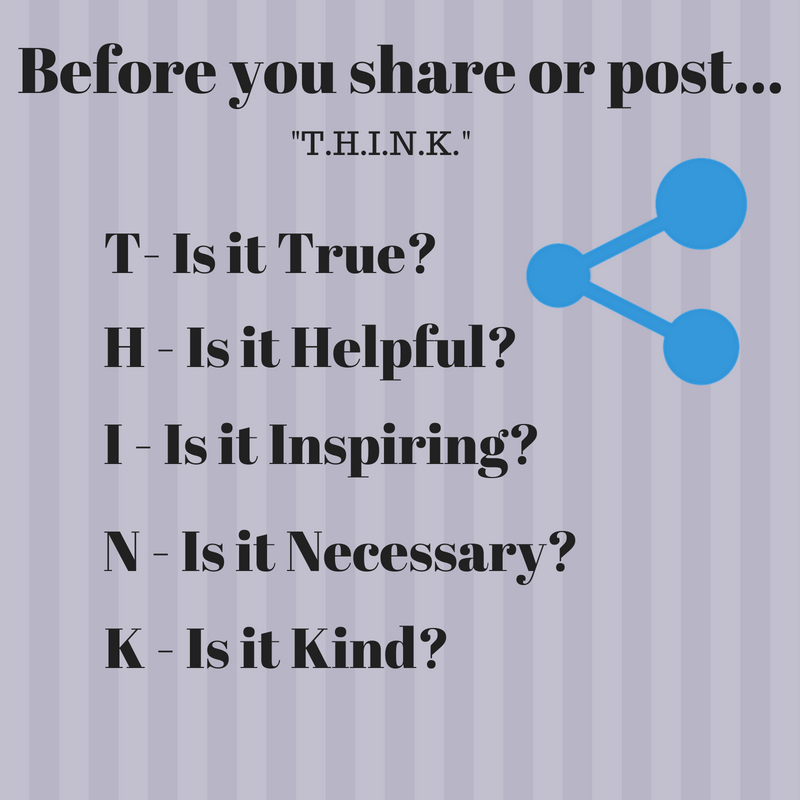The other day I opened up Facebook and saw on my feed a particularly disturbing photograph of a sobbing young child in what could only be described as a cage. Bold wording over the photograph insinuated that this child was an immigrant child, and placed blame for his situation on specific political individuals.
The photo made me so angry! The person who had shared the photo was a friend, so I had every reason to believe it was accurate. However, something made me take a second to do a quick double-take. So I opened another tab in my browser, pulled up Google, and typed in “Child in cage meme” and hit enter. The top three results quickly put the photo in context: it had been cropped out of a larger photograph taken at an organized protest that this child was attending with a parent. Yes he was crying, but no, he was not being detained or locked in a cage. Most likely he had simply missed his nap or was hungry or frightened by the angry voices.

I didn’t share that meme. Actually, I share very few memes or articles on social media, especially those that have a negative tone. I prefer my Facebook page to be a place where kittens and rainbows abound. Although I try not to shy away from tough issues, I don’t find that memes or words overlying photographs tend to do much in changing minds or winning hearts.
Social media can be a great way to connect with others both in real life and across the globe. However, it can also be a nasty place where hate and rhetoric tends to win over reason on empathy. I think that all of us, as social media users, can do a lot to help improve the tone of the larger discussion. When deciding whether or not to click “share,” it can be helpful to simply take a moment and THINK.

Before you share, ask yourself:
Is it True?
Anytime that I read something on social media that makes my blood pressure rise or pulls at my emotions, I try to remember to take a few seconds to verify the source or the facts of the claim. Anyone can throw a few bold font words on a photograph to further whatever worldview they are trying to promote, or to cast a certain person or group of people in a specific light. Often these claims are downright false, or at the least taken out of context.
Sharing false information, such as in the case of the photograph of that child, can harm the case of things that ARE true, and that are very important, by spreading false information about causes I may believe in very strongly. For example, if I had shared the meme of the young child which was taken out of context, spreading that false image could harm the credibility of those reporting on true images and information related to the situation.
Websites such as Snopes or Politifact are helpful in researching a specific claim or story, but often a few seconds of Google searching some key words can give me a good idea of whether or not the meme or claim in question is true, false, or questionable.
Is it Helpful?
If you find that the facts in the meme or article in question are most likely true, next ask yourself if it is helpful to the larger discussion. Does it add something or help clarify your understanding? Does it explain something that is difficult to understand? Is it fact, or opinion, or opinion masquerading as fact? Is it balanced, or does it inflame emotions by taking something that is technically true out of context? After reading or viewing the content, do you have a better understanding of the underlying issue?
Is it Inspiring?
Does sharing the content help move others to action? Does it support a cause that you believe in? Would you want your name and face associated with the creators of the content? Is the end feeling or result positive?
Is it Necessary?
Does the information or opinion need to be voiced? Sometimes there is value in silence.
Is it Kind?
Of all of the questions, I think this one might be the most important. So much of what is circulated on social media might be true, and one might even consider it helpful and inspiring and necessary, depending on one’s specific view on whatever issue is being presented. But is it kind? Are the words and the tone and the attitude something that I would want my child repeating? Does it build another person up, or does it tear them down?
The THINK acronym is helpful in all communications, but especially in online interactions where people often feel emboldened to say or post things that they would never say out loud to a real live person. My personal view is that if I cannot answer a resounding “YES!” to all 5 of these questions, I would take a long moment to consider before sharing.
The internet can be a nasty place, and a good amount of what is shared on social media simply fails most or all of these tests. Clicking “share” on an inflammatory meme or article that aligns with my particular views might give me a sense of satisfaction, but it also closes doors to real meaningful conversations with anyone who might have a different experience or point of view. And that is really the opposite of the “social” in social media.
What do you think? How do you decide what to “share” on social media?











So true, Sarah! I can’t count the number of times when I have seen some post about how badly some big box store or restaurant treated someone. Then, with 10 seconds of research, I find it is a baldfaced lie. It makes the poster look really foolish!